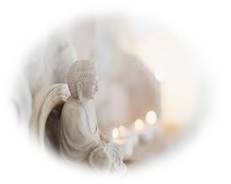Dharma Sunday: Various Suttas (Application and Goals)
 Carlita
Bastian please! Save us!United States Veteran
Carlita
Bastian please! Save us!United States Veteran
"Thus you should train yourselves: 'We will listen when discourses that are words of the Tathagata — deep, deep in their meaning, transcendent, connected with emptiness — are being recited. We will lend ear, will set our hearts on knowing them, will regard these teachings as worth grasping & mastering.' That's how you should train yourselves." — SN 20.7
Application of Dharma Sunday Suttas
I had been thinking of how to apply weekly suttas in addition to discussing them online. I put together three ways we can do this, the first is by belief/conviction, the second by practice, and the third theology/study. In doing so throughout the day, observe what happens and correlate your actions etc with the suttas you discussed. Next, reflect on those experiences. The next morning, make your intent to apply what you learned. Throughout the day observe again.
Application of The Dharma by:
Belief/Conviction
Importance of conviction by HH The Dalai Lama (Video)
And what is the treasure of conviction? There is the case where a disciple of the noble ones has conviction, is convinced of the Tathāgata’s awakening: ‘Indeed, the Blessed One is worthy & rightly self-awakened, consummate in clear-knowing & conduct, well-gone, an expert with regard to the cosmos, unexcelled trainer of people fit to be tamed, teacher of devas & human beings, awakened, blessed.’ This is called the treasure of conviction. ~Treasure Dhanna Sutta AN 7:6
To take refuge in the Buddha means, not taking refuge in him as a person, but taking refuge in the fact of his Awakening: placing trust in the belief that he did awaken to the truth, that he did so by developing qualities that we too can develop, and that the truths to which he awoke provide the best perspective for the conduct of our life.
Through the round of many births
without reward,
without rest,
seeking the house builder.
Painful is birth again
and again.House builder, you're seen!
You will not build a house again.
All your rafters broken,
the ridge pole destroyed,
gone to the Unformed, the mind
has attained the end of craving.
— Dhp 153-54
Taking refuge in The Buddha is convicting yourself to practice in The Buddha's enlightenment. Which is repetitive because when you take refuge in The Buddha, you're taking refuge in enlightenment and to be enlightened.
Practice
The Importance of Practice
This can be applied to all schools and sects if you replace Lam Rim or specific practices she talks about with the basics of Buddhism and/or the teachings of the school/sect you follow.
The importance of giving
“Just as it is not easy to take the measure of the great ocean as ‘just this many buckets of water, just this many hundreds of buckets of water, just this many thousands of buckets of water, or just this many hundreds of thousands of buckets of water.’ It is simply reckoned as a great mass of water, incalculable, immeasurable. In the same way, it is not easy to take the measure of the merit of a donation thus endowed with six factors as ‘just this much a bonanza of merit, a bonanza of what is skillful—a nutriment of bliss, heavenly, resulting in bliss, leading to heaven—that leads to what is desirable, pleasing, charming, beneficial, pleasant.’ It is simply reckoned as a great mass of merit, incalculable, immeasurable.” ~AN 7.49 Dhana Giving
Theology and Study
The physical teachings themselves.
The Importance of Study

Observation: I experienced X form of suffering (or created this action) and receive this result. How can I use what I learn to lesson the reaction of the affect of X?
Reflection: Hmm. I actually did a good job in looking at X. I do need to work on Y.
Application: This morning I will make the intention to do what I reflect on last night. I will do this specific thing(s) throughout the day whether it is small like I will smile today or something bigger as I will apologize to someone I had a grudge on for years.
Observation: How did the application help.
And it goes into a circle.
I know this is a lot. I just started and kept on going with it.
